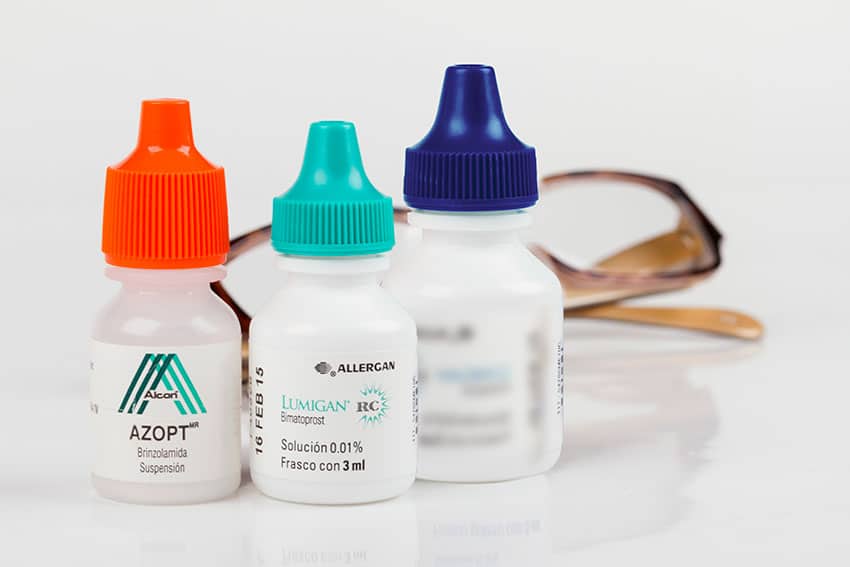Medical Glaucoma Treatment
Medical Management / Drops
Most glaucoma patients start their treatment with drops to lower their Intraocular Pressure (IOP). These medications fall into various classes, each recognizable by the color of their bottle caps.
Prostaglandin analogues (turquoise cap):
Doctors often prescribe these as a first choice since their introduction in the early 1990s. They increase fluid outflow, reducing IOP by 25-35%, with a simple once-nightly dosage. Side effects may include eye redness, iris pigmentation changes, eyelash growth, and eyelid darkening. Doctors might avoid them if you have certain eye conditions like macular edema or corneal infections.
B-Blockers (yellow cap):
These reduce fluid production, lowering IOP by 20-30%. They can cause ocular side effects like burning and systemic effects like fatigue. They’re usually not recommended for patients with asthma or slow heart rate due to potential breathing difficulties.
Alpha Agonists (purple cap):
Alpha agonists reduce fluid production and increase outflow. They might cause eye burning or allergic reactions. Systemic effects include fatigue and drowsiness. Use them with caution in the elderly and those on certain medications.
CAIs - Carbonic Anhydrase Inhibitors (orange cap):
These reduce aqueous humor production. Topical side effects include burning, while oral forms can cause tingling, taste changes, and, rarely, depression. Oral CAIs are a last resort due to their side effects.
ROCK inhibitors (white cap):
These reduce aqueous humor production. Topical side effects include burning, while oral forms can cause tingling, taste changes, and, rarely, depression. Oral CAIs are a last resort due to their side effects.
Each class offers unique benefits and potential side effects, tailored to individual patient needs and conditions. Regular consultations with your doctor are essential to find the most suitable treatment plan.
Getting Ready for the Medical Glaucoma Treatment
Before your visit, collecting any previous medical records or details about your condition can be very helpful. This helps our doctors get a full picture of your health history.
The Glaucoma Center of Texas is more than a clinic—it’s a support network of caregivers, medical experts, and people like you, all working towards better vision and life quality.
Contact us now. Let’s start this journey to improved eye health together.

